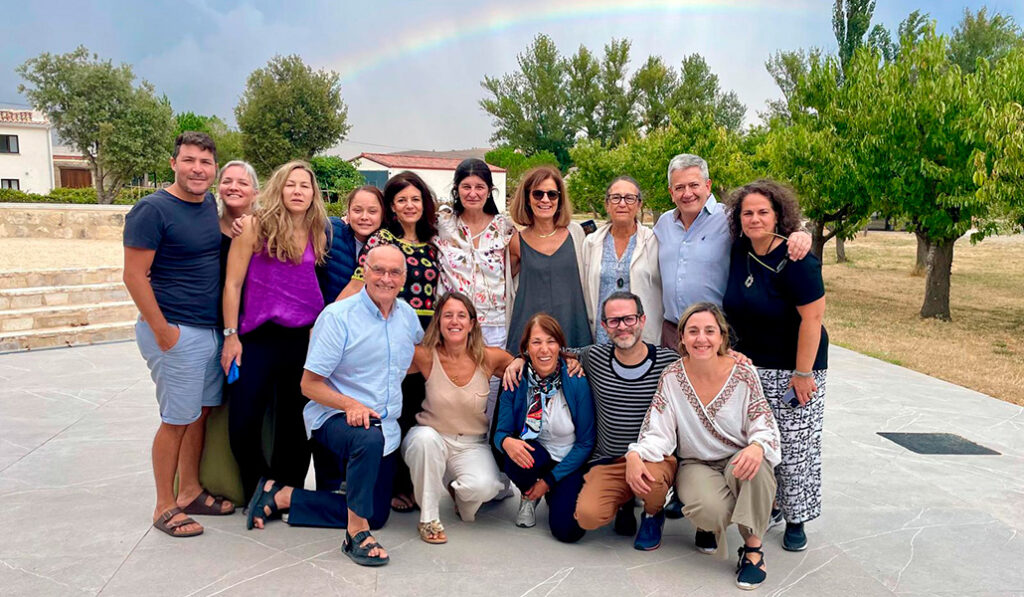Science and spirituality to “accompany the last trip”

Elia Martínez serves us after leaving Verónica’s room, one of the people she accompanies in the Medical Oncology Service of the Fuenlabrada Hospital. “It’s the perfect time to speak,” he begins by saying, “because patients also teach us and help us.” She is the president of the Spanish Palliative Care Society, and her way of talking about the people who are in the final stage of life transmits the same peace and humanity that claims to dignify those care.
Martínez has been one of the participants in the I International Summer School for trainers in spiritual accompaniment in Clinic, who has recently gathered more than 25 medical experts from seven different countries in the Burgos town of Castrojeriz and has been organized by the Ibero -American Forum of spirituality in clinic. At the end of the days, the participants have signed and made public a manifesto to reaffirm the integral value and dignity of the human being, as well as to promote a spiritual accompaniment model at the end of life. Elia Martínez claims that “in critical situations such as serious illness, support from the spiritual aspect complements the other work areas, such as the clinic or psychological.” In addition, experts allude to the writing that “since goodwill is not enough, we have the exciting challenge of linking science and spirituality, methodological rigor and creativity, to generate valid, reliable and clinical utility strategies and tools.”

Although Spain is a reference in the field of palliative care, according to Martínez there are still “clear deficiencies” in the training of health professionals regarding spiritual accompaniment, which “can assume suffering to the doctors themselves, because addressing these Spheres of the human being is complicated and not being able to do well can generate frustration ». In addition, it emphasizes that, although medicine does not always contemplate spirituality as another aspect of care, “we know that when there is, the patient’s quality of life improves.” Although this does not mean that the patient must have a certain belief or belong to any specific religion, experts emphasize that “there are patients who, during the disease, revive their faith and find meaning to life, even in those adverse situations for which They are happening ».
However, the accompaniment becomes palpable being present and looking into the eye. Therefore, the testimony of these professionals is based on extensive clinical experience that puts concrete faces to a stage of the life of which it still costs to speak in the public sphere. “We help that person to have peace and accept the reality that is being imposed, to reconcile with his biography and make sense of what he has done,” he explains in conversation with Alfa and Omega Enric Benito, a palliatic doctor, who was also present at the Castrojeriz meeting. “Life has no end, but there is an important farewell process and we are the ones who accompany the trip in this last section.”
New ethical commitments
The deontological code of nursing in Spain has been immersed in its second update since 1998, with the aim of reflecting “the social, normative and professional changes that govern the practice,” says Tayra Velasco, president of the Deontological Commission of the General Council of the General Council of Nursing in conversation with Alfa and Omega. The renewal process will last until September 25 and anyone, even alien to medicine, can make their change proposals through official schools. After the established deadline, the new Code will be reviewed and submitted to debate and final approval by the General Council Assembly.
At the moment there is a draft that includes some referent changes, for example, to abortion, to organ transplants or the final stage of life. On this, the text indicates that the nurse “will contribute its professional assessment in the face of life support treatments, palliative sedation or euthanasia, always respecting the values and desires of the person attended.”





